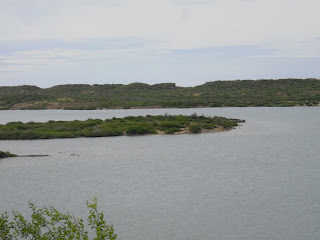Hello Myrugia, thanks for the great company on our beautiful morning walk. Myrugia and I met this morning on the path around the pool and the park at about 7:15 or 7:30; we walked until about 9 a.m.. It was early and we were both happy to see each other. We decided to do five laps. I learned quite a bit about Curacao as we walked. Children in Curacao are first exposed to Papiamentu at home (years ago the first language in school to learn was Dutch now it is Papiamentu). After Papiamentu, they learn Dutch, Spanish and English. In high school they can add French and German to the list. Myrugia told me that there are people of African descent, some with ancestors from Venezuela, others from Santo Domingo, lately there are immigrants from China and India. There are a number from Haiti.
After shariing a number of interesting topics about us as Caribbean people and Caribbean neighbors, we started discussing issues of identity. There is talk that Curacao cannot govern itself because it has very little resources. I recalled that someone had mentioned to me that a number of Curazoleans are selling their land to foreign investors and that a number of businesses and land were now owned by non-Curazoleans. What will that mean in the long run?
An idea came to mind. Why can't Curazoleans sell this valuable commodity that they have. Obviously, the pedagogy used here is working to make a nation quadrilingual.
What is even more valuable is Papiamento. A Caribbean university should be established on the island to teach everything about the language and the language itself. If we are aiming to become one people of the Caribbean, it means that these languages should be spoken by members of the Caribbean and we should be schooled on them. This goes for the language of the Garifuna, the languages in Suriname, the creole of Haiti and the creoles of the many other Caribbean nations. This is a commodity of identity and a commodity of power.
Caribbean people must be aware of and versatile in these languages. Children must learn how clever and how much advanced ability it takes to learn to communicate in multiple languages and to use those languages to build another that crosses borders.



















